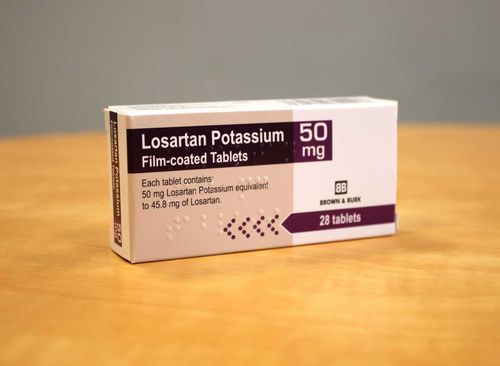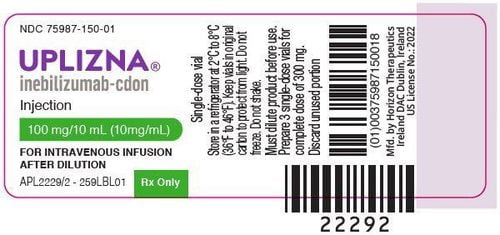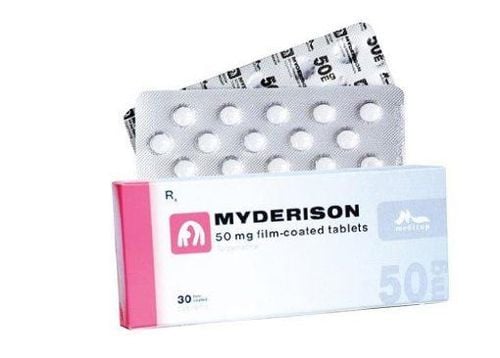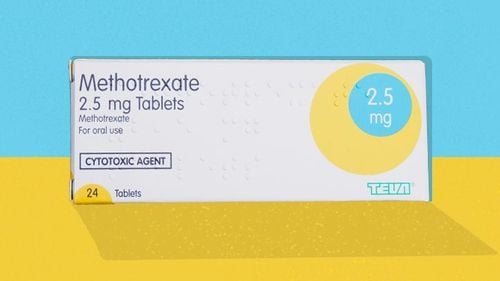This is an automatically translated article.
Posted by Doctor Nguyen Thi Minh Phuong, Neurological Specialist, Vinmec Times City International HospitalMultiple Sclerosis (MS) is an autoimmune disease that damages the brain and spinal cord. The disease presents with a variety of symptoms, including numbness/weakness in one or more limbs, tremors, dizziness/loss of gait balance, vision abnormalities such as blurred vision, double vision, partial or complete loss markets, muscle cramps, slurred speech, fatigue, depression, bowel and bladder problems.
1. 1 in 5 people with other neurological conditions are misdiagnosed as multiple sclerosis
In fact, not all patients with multiple sclerosis have all the symptoms of the disease. On the contrary, there are many other diseases that also have MS-like symptoms, and these are called MS-like diseases. According to a study published in May 2019 in the journal Multiple Sclerosis and Related Disoders: Nearly 1 in 5 patients with another neurological disease is misdiagnosed as multiple sclerosis. This misdiagnosis may be due to the fact that there is no specific test that can definitively diagnose multiple sclerosis. Sometimes the diagnosis of multiple sclerosis must be based on the exclusion of other diseases.
Many diseases can have symptoms similar to multiple sclerosis, but the treatment is not the same. Therefore, accurate diagnosis of multiple sclerosis is of great importance.
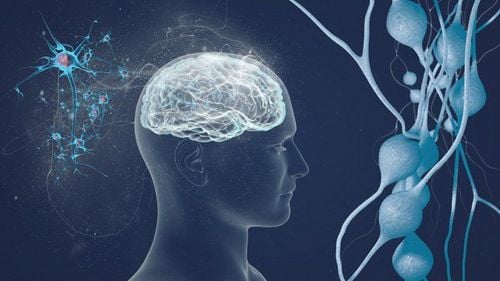
Bệnh lý xơ cứng rải rác có thể được chẩn đoán nhầm
2. Some diseases have symptoms similar to multiple sclerosis
2.1 Autoimmune diseases with multiple sclerosis-like symptoms. Neuromyelitis Optica Spectrum Disorder (NMOSD)
This is an inflammatory disease of the myelin sheath of the optic nerve and spinal cord. living. Some of the symptoms of this group of diseases may resemble MS, however patients may experience sudden loss of vision, pain in 1 or 2 eyes, persistent vomiting/hiccups that are difficult to control, bladder and bowel dysfunction. , numbness/loss of sensation in hands or feet. MS-directed treatment is often ineffective, or may even aggravate the disease. Diagnosis of the disease is based on the NMO IgG antibody test, and many other supporting tests.
Acute Diffuse Encephalomyelitis : Acute Disseminated Encephalomyelitis (ADEM) Acute Diffuse Encephalitis is an inflammation of the brain and spinal cord caused by loss of myelin. Symptoms may include headache, convulsions, neck stiffness, ataxia, optic nerve inflammation, vomiting, fatigue, delirium, and sometimes paralysis of the arms/legs. The disease usually begins after a viral infection or after vaccination.
Systemic Lupus Erythematosus Systemic Lupus Erythematosus (SLE) Systemic lupus erythematosus is a chronic inflammatory disease that affects joints, skin, kidneys, and blood vessels. Common symptoms include pain, joint swelling, extreme fatigue, anemia, skin rash, hair loss, seizures, sensitivity to sunlight, Raynaud's phenomenon (white and blue fingers when exposed to cold). Diagnosis requires multiple tests, including MRI/CT, echocardiography, X-rays, blood tests, and even a kidney biopsy.

Tình trạng bệnh Lupus ban đỏ hệ thống với biểu hiện ban da
Sjogren's syndrome: is a chronic disease with damage to the glands (tears, salivary glands ..). Patients often experience dry mouth, dry eyes, difficulty swallowing, difficulty speaking, fatigue, joint pain, decreased sensation/numbness. Measuring nerve conduction velocity can help differentiate Sjogren's syndrome from MS.
Myasthenia gravis : Myasthenia Gravis (MG) The patient shows weakness in the muscles (eyelid muscles, pharyngeal muscles, limbs muscles...) at the end of the day or after repeating the movement continuously. However, people with myasthenia gravis often do not feel fatigued, or lose sensation. A very specific test to diagnose the disease is to look for antibodies to the acetylcholine receptor.
Sarcoidosis : Usually occurs between the ages of 20-40. Symptoms include dry mouth, fatigue, chronic joint pain, vision abnormalities, itchy skin, shortness of breath, cough and fever. One of the most useful diagnostic tests is a chest X-ray.

Sarcoidosis gây triệu chứng khó thở cho người bệnh
2.2 Infectious diseases with symptoms similar to multiple sclerosis Lyme disease : Caused by the bacterium Borrelia Burgdorferi. The initial symptom is a skin rash at the sting site, when the bacteria spreads into the blood, it will cause fatigue, neck pain, neck stiffness, numbness of hands and feet, and facial paralysis. Diagnosis is based on clinical evidence, epidemiological factors, and evidence of skin tick bites.
Neurosyphilis: Nerve damage in patients with syphilis can cause problems with vision, cognition, and motor and sensory dysfunction.
Bone marrow damage caused by Human T-cell lymphotrophic virus (HTLV-1) Patients may have partial paralysis in the legs, stiffness, circular muscle disorders, impotence. Diagnosis is by testing for antibodies to the virus in the blood.
2.3 Vascular diseases with symptoms similar to multiple sclerosis: Stroke A stroke can suddenly cause symptoms of vision in one or both eyes, dizziness, loss of balance, headache, difficulty speaking , numbness/paralysis of limbs, vomiting, confusion even coma. Usually, the doctor will take a CT / MRI of the brain - brain vessels to diagnose. However, in some cases of mild and repeated strokes, patients may experience symptoms similar to exacerbations of MS.

Triệu chứng đau đầu do đột quỵ gây ra
Cerebral Vasculitis : Cerebral vasculitis can cause headaches, confusion, and neurological deficits. Binswanger's disease is a common cerebrovascular disease in the elderly with high blood pressure. The disease causes demyelination in the white matter of the brain, similar to the demyelination seen in MS. Arteriovenous–dural venous catheterization in the spinal cord: patients may experience weakness in the legs/arms, bladder and bowel disorders, sensory disturbances. MRI of the marrow and marrow vasculature for diagnosis. 2.4 Some other diseases Fibromyalgia, muscular dystrophy. Amyotrophic lateral sclerosis. Vitamin B12 deficiency, hypothyroidism. Peripheral nerve disease. Migraine. Bechets disease, Arnold-Chiari deformity. Psychosis and dissociative disorder.
Autologous hematopoietic stem cell infusion can alleviate autoimmune reactions and long-term relapses of the disease. At Vinmec International General Hospital, patients with multiple sclerosis have been treated with autologous hematopoietic stem cell transplantation. Transfusion of autologous hematopoietic stem cells is an attempt to "reboot" the immune system, whose job it is to destroy damage to the brain and spinal cord in multiple sclerosis. For autologous stem cell infusion for multiple sclerosis, hematopoietic stem cells are obtained from your body (autologous infusion) from your bone marrow or blood, selected and stored before being depleted. the immune system to the full extent of the chemical. The stored hematopoietic stem cells are then passed back to the body. The new stem cells travel down to the bone marrow and over time restore the immune system.

Truyền tế bào gốc tạo máu tự thân tại Bệnh viện Vinmec
Customers can directly go to Vinmec Health system nationwide to visit or contact the hotline HERE for support.




